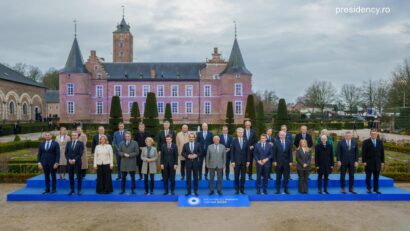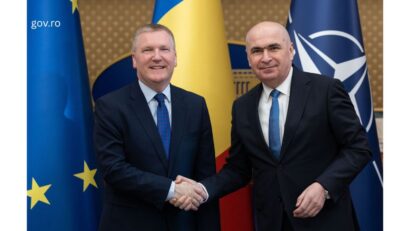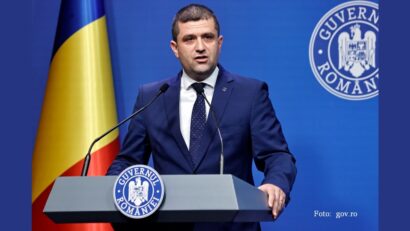Romania reacts to the Pope’s Death
Romania mourns the death of Pope Francis.

Ştefan Stoica, 22.04.2025, 14:00
Pope Francis passed away on Monday, the second day of Easter, after 12 years of pontificate, and the emotion caused by his disappearance crossed the borders of the Catholic world and even the Christian world. In Romania, a majority Orthodox country that Pope Francis visited in May 2019, two decades after the historic visit of one of his great predecessors, Pope John Paul II, the news of his passing has caused sadness. ‘In these moments of mourning and pain, I extend my sincere condolences to the Catholic faithful in Romania and around the world, as well as to all those for whom Pope Francis was a spiritual beacon and a source of hope. He was a symbol of humility, compassion and tireless commitment to peace and justice,’ the interim president Ilie Bolojan wrote on Facebook. He noted that Pope Francis was also a close friend of the Romanian people, whom he valued for the depth of its faith and spirit.
Pope Francis remains for people all over the world, regardless of their denomination, the tireless defender of peace, of fellow human beings in suffering and of spiritual communion, the PM Marcel Ciolacu said. The Patriarch of the Romanian Orthodox Church, Daniel, conveyed a message to the College of Cardinals at the Vatican that reads as follows: ‘I received with deep sadness the news of the death of Pope Francis, a venerable personality of contemporary Christianity, whose Pontificate leaves a profound mark on the recent history of the Roman Catholic Church. We share the pain caused by this loss and extend our condolences to the entire Roman Catholic Church’.
Six years ago, Pope Francis came to Romania on a state, pastoral and ecumenical visit, carried out under the title ‘Let’s walk together!’. He met with the president and the incumbent prime minister, had a private meeting with Patriarch Daniel, gave a speech at the National Cathedral and said the prayer “Our Father” in Latin. Also in Bucharest, Francis held a service at the Saint Joseph Catholic Cathedral and greeted tens of thousands of people eager to see him.
On the second day of his visit to Romania, Pope Francis celebrated a Pontifical Mass at the Marian sanctuary of Sumuleu Ciuc, in an area of eastern Transylvania inhabited mostly by ethnic Hungarians and home to the largest annual Catholic pilgrimage in Central and Eastern Europe. He then visited Iaşi, a northeastern city home to a large community of Romanian Catholics, where he blessed children, the elderly and the sick and prayed for the young people and families.
In Blaj, in the heart of Transylvania and of the Romanian spirituality, he led the beatification ceremony of the seven martyr Greek Catholic bishops, persecuted and tortured by the communist regime. He also met with representatives of the Roma community to whom he apologized on behalf of the Church for discrimination and segregation in history. Upon his departure, Pope Francis wrote: ‘May the Virgin Mary extend her maternal protection over all the citizens of Romania who, throughout history, have always placed their trust in her intercession. I entrust all of you to the Virgin Mary and I pray that she may guide you on the path of faith.’ (LS)






























